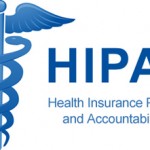
Hospital Mergers: 2015 Projected Trends
Hospital mergers and acquisitions [M&A] aren’t a new concept, but in the post-Affordable Care Act world they have become a popular solution for yielding to ACA regulations. According to the American Hospital Association’s 2015 Environmental Scan “mergers, consolidations and other partnerships” will increase due to the pressures on hospitals to lower costs and achieve economic goals. Here at BHM we also think that this healthcare trend is one to watch for 2015, so we’ve pulled together some key insights for you to consider.













